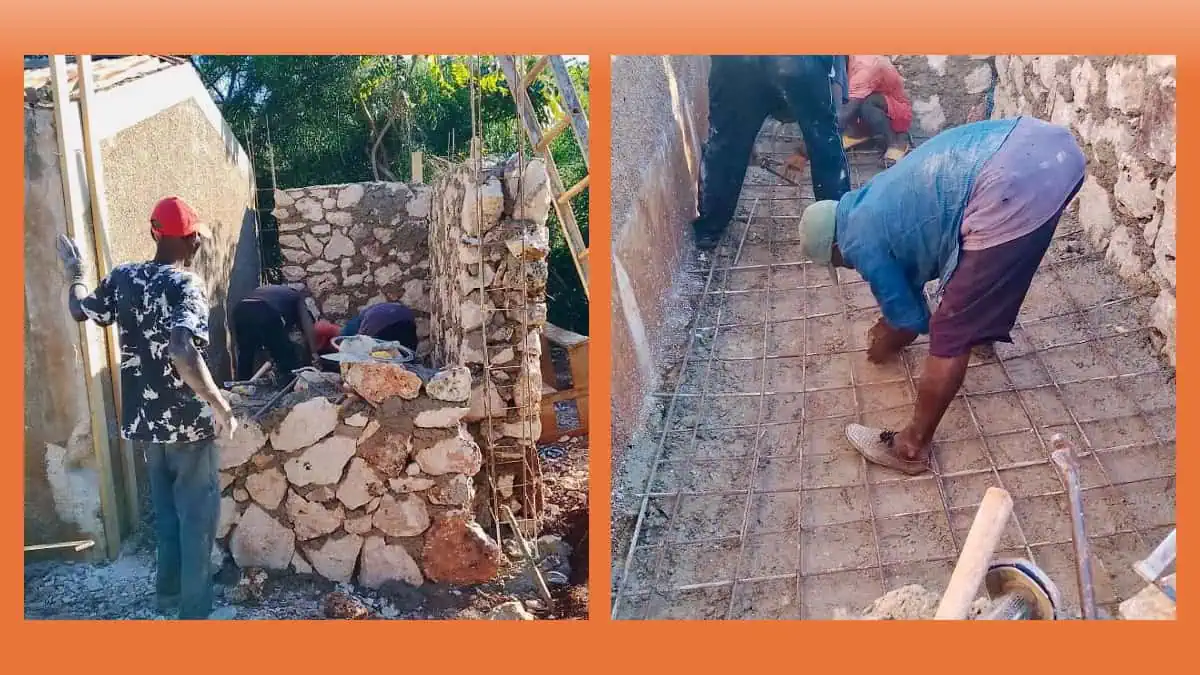
by Kent Annan
Kent Annan and Berlin August, one of the children of his host family, share the work of washing clothes together.
Giving in Haiti is complicated. As one small example, on birthdays we’ve given colorful stickers to the kids in our Haitian host-family, which were a hit. We had a whole pack of stickers, but we just gave each child on his or her birthday one sheet. Giving the whole pack would have been too extravagant, would have outshone the gifts everyone else in the family gave. At the same time, they know we have access to more resources, and we don’t want to be cheap.
We don’t want to be viewed in our neighborhood as foreign patrons, reinforcing an unhealthy historic paternalism (that was combined with exploitation) that can lead to unhelpful relationships of dependency. We don’t want our relationships to consist primarily of our being seen as giver-outers-of-stuff (whether food aid or cheap toys). But we also want to give everything we have, everything we could possibly get our hands on. It’s nearly impossible to convey how complicated this subject feels here. I honestly don’t know if this is characteristic of the “foreign aid” situation in most countries, or if Haiti is an especially difficult situation. I do know that when we’ve asked other long-term foreigners here for counsel, they’ve responded with phrases like, “Good luck” or “Let me know if you find the answer.”
Here’s another example: There’s a really kind, gentle, hardworking neighbor, about my age (thirty years old), who has lost half of his teeth already, and the other half are blackened and decaying to stumps in his mouth. Why not just take him to the dentist and pay for the best possible care? Well, then would you do it for everyone else who has nearly as serious problems—because if you helped, then it’s guaranteed that the next day twenty people with problems just as bad or worse would show up? What about people who have chronic stomach problems…or a million other real, genuine, pressing, painful problems? We can’t afford to fix everything, and the needs go on and on. And then, we must know that all of our relationships would instantly change because we’d be seen as a source for these expenses. Yes, but so what: even if you can’t change the world, at least help the one guy who’s on his way to being toothless by thirty-five. Okay, but what does it do to his relationships in the community? And does it reinforce a damaging cycle of relationships between Haitians and Americans that needs to be reinvented? Yes…but, then there’s just basic human need, and who cares about psychology and sociology and history when a guy is suffering fifteen brutal cavities. Alas, this is but a sample of the debate that swirls in my head.
And then one day as I walk down the path, I see a neighbor and say hi, chat with him as we walk together toward our village. He’s walking home from his garden with eight ears of freshly picked corn in his hand, the husks tied together so they’re easy to carry. Then with a smile, but without making a big deal of it, he puts all of the corn in my hand, and waves off my genuine attempt to refuse the gift because it’s the second time he’s done this in three weeks.
And then last week Shelly and I piled into a tap-tap (a small pickup truck that serves as a taxi) to ride into town. We ended up sitting across from another of our neighbors. He’s always nice, with a brilliantly shining smile. We chat from time to time. I don’t remember his name. We said hi to each other, then halfway through the trip, when it was time to pay the twelve cents per passenger for the ride, he quickly gave the collector his money and said, pointing at himself then Shelly and then me, “For the three of us.” Then he timidly smiled at us.
We are left humbly grateful again and again. And we pray for insight as we work to understand how to best give in a way that honors the dignity and complex reality of our neighbors here, people who give so much—and who need so much.